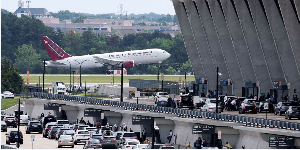The Production Manager of the Ghana Cylinder Manufacturing Company Limited (GCMC), Mr Ezekiel Mensah, has urged individuals to use steel cylinders made in Ghana instead of patronising imported cylinders to avoid gas explosion.
Mr Mensah explained that after a decade of using a gas cylinder, its user must have it examined by an expert to ascertain whether it is still in good shape or not.
He said using gas cylinder for more than 10 years is dangerous.
Mr Mensah gave the advice in an interview with the DAILY HERITAGE yesterday.
The production manager said there are fibre gas cylinders in the system and that users must be careful using it.
“Currently the technology for mending the fibre cylinder when it is faulty is not available in Ghana, so users must take safety precautions seriously.
“Because the fibre is made of glass, it can easily run dry and catch fire,” he said.
He warned cylinder repairers not to attempt to repair fibre cylinders which have been introduced on the market recently.
Mr Mensah said experts at the GCMC and some gas filling stations could help educate users to either dispose of worn-out metallic cylinders or have them refitted for further use.
He expressed worry over the use of old, rusty gas cylinders and said they posed danger to the lives of the users, their families and other residents.
BUYING A CYLINDER
Mr Mensah advised the public to properly examine an empty gas cylinder to ascertain if it is new before buying it, adding that failure to do so could lead to one buying an old repainted cylinder.
“In buying a cylinder, one should watch out for the specifications or markings on the cylinder. Good cylinders should have the name of the manufacturer and date of the manufacture, country of origin, type of gas it could contain, its water capacity, serial number and test pressure,” he said.
The production manager said the lifespan of a cylinder begins the day it is filled with gas and urged the public to buy cylinders that were made in Ghana purposely for local use, instead of patronising imported ones.
INJURIES AND DEATHS
In an interview with the media recently, the Head of the Reconstructive Plastic Surgery and Burns Centre at the Korle-Bu Teaching Hospital, Dr Opoku Ware Ampomah, stated that 35% of all burns recorded last year were as a result of gas explosion.
Dr Ampomah said explosions also accounted for 44% of deaths at the centre and warned against the use of faulty gas cylinders because they could explode.
He urged the public to pay close attention to the dangerous features on their gas cylinders to avoid health and other risks.
He further cautioned the public to be wary of quack Liquefied Petroleum Gas engineers who deceive people into allowing them to repair their cylinders and end up ripping them off.
Business News of Tuesday, 4 July 2017
Source: peacefmonline.com
Imported gas cylinders dangerous, says Ghana Cylinder Manufacturing Company Limited
 Ghana Cylinder Manufacturing Limited urged individuals to use steel cylinders made in Ghana
Ghana Cylinder Manufacturing Limited urged individuals to use steel cylinders made in Ghana












